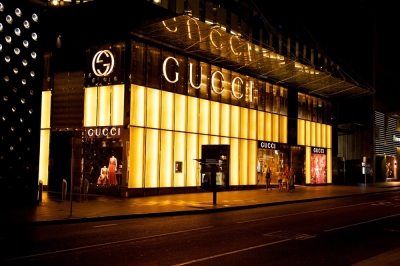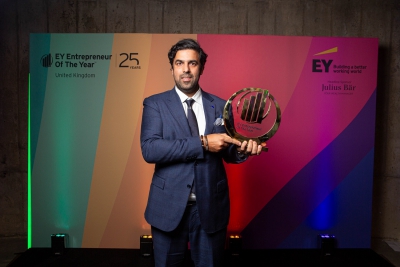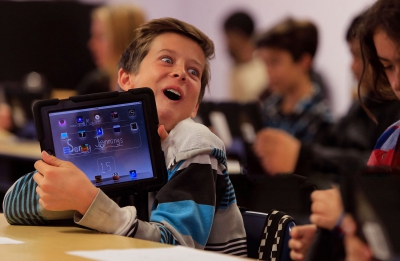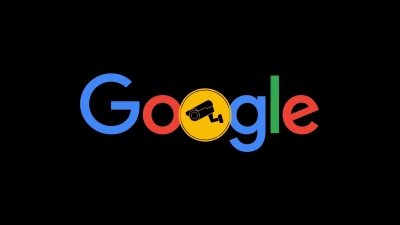
From 0 to 17 million in revenue, Lovable took only 3 months
There is no shortage of miracles in the AI business world.
Look, Lovable from Sweden, relying on the slogan "You can make apps even if you can't write code", grew from 0 to 17 million US dollars ARR (annual recurring revenue) in just three months.
This also makes it the fastest growing AI startup in Europe ever.
What Lovable does is actually very simple, which is to turn application development into "building blocks". Ordinary people can transform ideas into applications in a few seconds with simple prompts.
Don’t underestimate this, Lovable’s user stickiness is even higher than ChatGPT’s.
According to the company's CEO Anton Osika, the first-month retention rate of the product's paying users is as high as 85%, and is even growing.
What’s even more surprising is that Lovable has only 15 people to achieve such impressive results, and the average revenue per person is over $1 million.
Looking back at the company’s development history, Lovable’s growth miracle is not simply due to betting on the trend of AI programming. From the choice of entry timing to product design concepts, to early operational strategies, Lovable has a unique understanding.
To some extent, Lovable's success is more like a textbook case of entrepreneurship in the AI era.

01 Fastest Growing AI Startups
Lovable is a Swedish startup founded in 2023 by Anton Osika and Fabian Hedin.
Like many AI entrepreneurs, Anton and Fabian are two geniuses.
Anton started programming at the age of 12. He has studied particle physics, founded a company, and secured an investment of 20 million US dollars. Fabian is no less impressive. He started his entrepreneurial journey at the age of 10 and sold his company while he was in high school.
In 2023, after Anton and Fabian met, they released an open source project called GPT Engineer.
This is a platform for automatically generating web applications, and it is also a prototype of Lovable. It allows users to describe the functions they want in natural language, and then AI will generate code that can be used in production.
As soon as the project was launched, it quickly gained a lot of attention on GitHub and became one of the fastest growing code base projects in the platform's history. The success of GPT Engineer verified the Lovable team's previous judgment:
AI programming products for non-technical personnel will be a market with huge potential.
Although GPT Engineer was successful, the team also found two problems:
First, the name of GPT Engineer sounds like a derivative of OpenAI, and the brand recognition is not strong;
Second, although GPT Engineer has gained a lot of attention on GitHub, GitHub's users are mainly developers, which cannot help it find a large number of potential users who do not understand technology;

To solve these problems, Anton and his team began to productize the idea and officially named the company "Lovable".
However, Lovable was not successful in the productization process from the beginning.
Before officially launching Lovable, the team had released two test versions, but neither of them achieved the expected success. One of the important reasons is that AI often gets stuck during programming, and users don’t know what to do if they don’t understand program development.
Later, Lovable found a solution. They invented a system that performs almost as well on large code bases as on small code bases, so that users will not encounter bottlenecks in the process of building products.
At the same time, Lovable also integrates services such as Supabase in the backend, which can help you easily connect to the backend, work with developers, and track the evolution of application versions.
In this way, Lovable becomes the first AI-driven engineer to cover the entire process from early design to later maintenance.
In November 2024, Lovable officially released its product. After the product launch, Lovable seemed to have opened up a new world and achieved great success.
While most AI products are still struggling with commercialization issues, Lovable has demonstrated amazing commercial growth potential:
In just 3 months, Lovable grew from 0 to $17M ARR, becoming one of the fastest growing startups in Europe ever.

The revenue growth curve is as follows:
On November 30th last year, eight days after its launch, Lovable reached $1 million in ARR;
On December 22nd of the same year, the company announced that ARR had exceeded $4 million;
On January 27th of this year, two months after its launch, Lovable’s ARR reached $10 million.
On February 26th of this year, the company announced again that its ARR had reached US$17 million.
In a recent interview, Anton Osika attributed the rapid growth of revenue to extremely high customer retention. Currently, the first-month retention rate of Lovable's paid users exceeds 85%, which is higher than ChatGPT, and this number is still rising.
Lovable not only made money, but also gained traffic. Now, Lovable has 10 million monthly website visits, just one step away from the industry leader Cursor's 13 million.
So why has Lovable achieved such great success?
02 The entrepreneurial philosophy behind the growth miracle
Since the founding of Lovable, the team has had a clear vision: AI can enable everyone to create web applications using natural language.
This is an extremely accurate judgment. You know, only 1% of the world's population knows how to program, but the demand for customized software is soaring, and the annual output value of the global software development market exceeds US$500 billion.
Having judgment is not enough, the Lovable team also accurately seized the best opportunity.
There is a saying in investment that when lightning strikes, you'd better be there. When it comes to AI startups, this means that startups need to have ready functions in advance before the model capabilities are ready.
Based on the judgment that everyone can develop programs, Lovable began exploring its implementation as early as 2023, and continued testing and iteration in 2024. After the model technology matured, Lovable took the lead in launching the product, which led to the growth of US$17 million in the next three months.
In addition to the choice of entrepreneurial direction and timing, the Lovable team also has unique product values: minimalist product concept and rapid iteration.
Anton Osika, the founder of Lovable, has the same minimalist product philosophy as Apple, which is to maximize the key experience, avoid "function stacking", and "reject" all unnecessary complex functions as much as possible.
When it comes to products, Lovable focuses on pursuing ease of use. This is especially true in terms of interaction. While most AI products choose chat mode, Lovable believes that this mode is not the most efficient way of interaction.
Therefore, Lovable incorporated the design of the prompt box and provided the function of targeted AI chat modification of specific components of the interface. In February 2025, Lovable launched a trial function Visual edits, which allows users to select any element in the interface and change the size, color, content, etc. of the element directly through the panel without going through AI chat. The experience is similar to Figma.
When asked about the difference between Bolt and Replit, Anton Osika's answer also revolved around ease of use:
1) Users can modify text and colors instantly without having to spend 30 seconds entering the code editor;
2) We synchronize with Github, so non-technical people don’t have to worry about local file systems and commits;
At the same time, Lovable also implemented the MVP (minimum viable product) strategy, which is to complete the core functions in just one weekend, and then spend several weekends to polish and optimize it. After quickly going online, user feedback drives iteration.
In the words of Anton Osika:
“Find the biggest bottlenecks and product problems, quickly iterate to solve them, and don’t make a long roadmap.”
Since the first version of GPT Engineer App, the team has been collecting user feedback and iterating. Only when they think the product is good enough, they officially changed the name to Lovable and launched it to the market, which was a success.
In addition to the product values, as one of the core initiators of the Stockholm AI community, Anton also spent a lot of time on community building, which played an important role in the early development of Lovable.
When GPT Engineer became a hit and received 50,000 GitHub stars, it quickly established credibility and promoted word-of-mouth through Twitter and developer forums.
Later, Lovable continued to release product updates and growth data, sharing user results to boost popularity, forming a FOMO (fear of missing out) cycle: the more people shared its explosive growth, the more people were eager to try it.

03 Conclusion
While technology giants are still racking their brains for the implementation scenarios of large models, Lovable has verified the explosive power of the "product subtraction strategy" by its persistent exploration of programming that everyone can do.
Today, with the explosive growth of AI applications, this Nordic company that turns code editors into chat boxes is using the eye-catching data of increasing ARR by $17 million in three months to prove:
At the intersection of AI and productivity, the real revolution may not come from technological leaps, but from taming complex systems into building blocks that even children can operate. The fulcrum for leveraging the $500 billion software development market lies in the keyboards of 4.4 billion ordinary people around the world who have never been exposed to a for loop (a common programming language).















